Different types of masonry walls in civil engineering. Let’s start with brick masonry walls. These are like building blocks made from bricks and mortar, providing both strength and great insulation for buildings. Then we have concrete block masonry walls, which are tough and affordable and made from concrete blocks and mortar.
Stone masonry walls offer a more natural and charming appeal, crafted from stones and mortar. And lastly, there are cavity walls, which have two layers with a gap in between to keep the building well-insulated. It’s important to know about these different types of masonry walls when building to ensure that our structures are not just strong but also dependable.
Understanding the Different Types of Masonry Walls in Civil Engineering
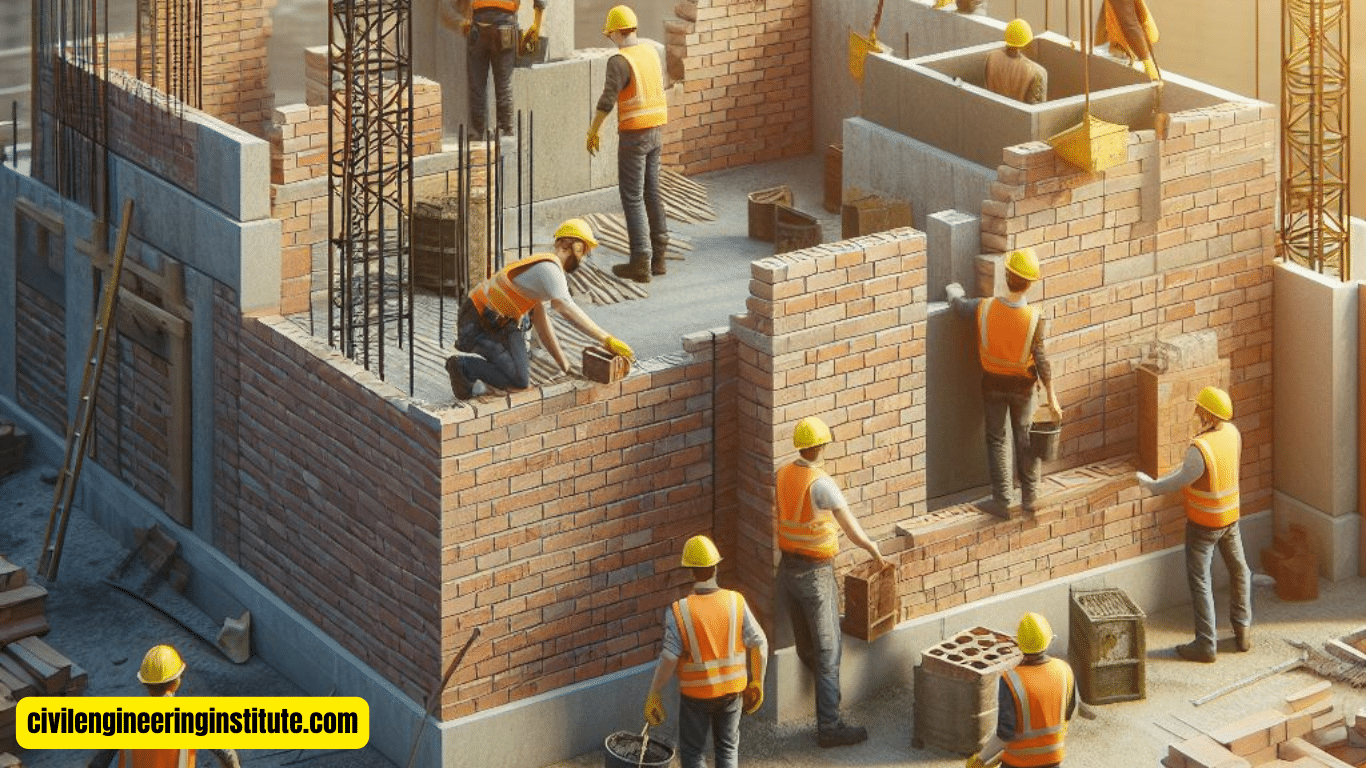
In the realm of civil engineering, masonry walls play a crucial role in constructing sturdy and durable buildings. These walls come in various types, each with its own unique characteristics and advantages. Let’s delve into the different types of masonry walls commonly used in construction.
Brick Masonry Walls
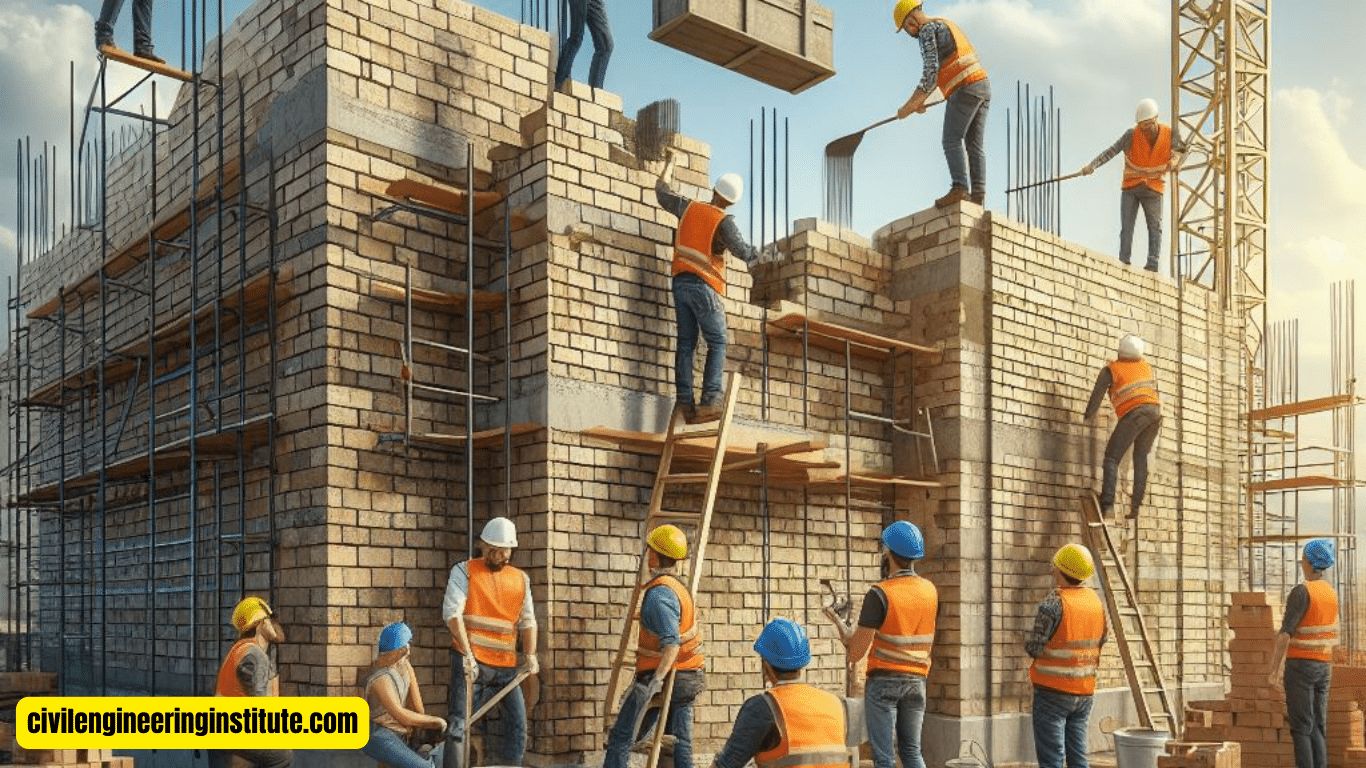
Brick masonry walls are a classic choice in civil engineering. These walls are constructed using bricks and mortar, providing both strength and thermal insulation. The versatility of bricks allows for different patterns and designs, making them a popular option for various architectural styles.
Concrete Block Masonry Walls
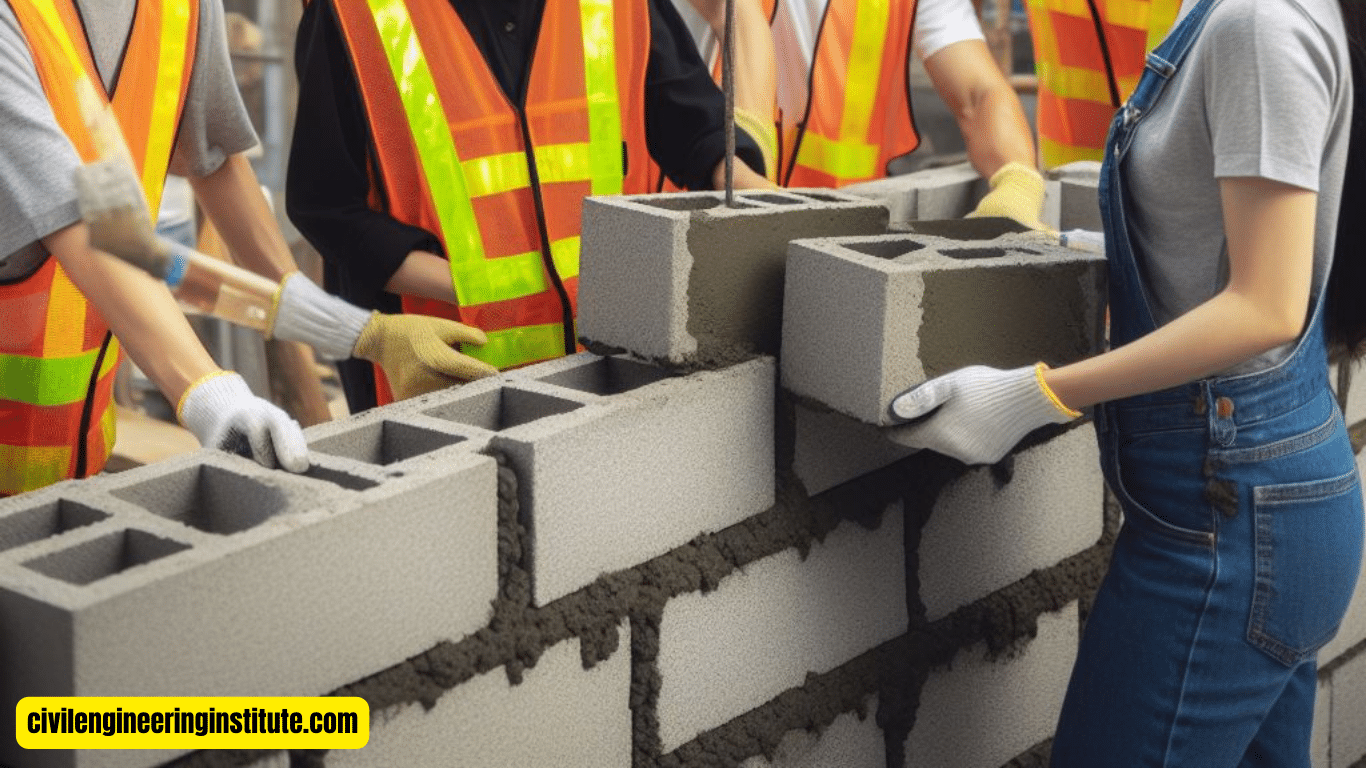
Concrete block masonry walls are another common choice due to their durability and cost-effectiveness. These walls are built using concrete blocks and mortar, offering excellent structural integrity. They are often preferred for their strength and fire resistance, making them suitable for both residential and commercial buildings.
Stone Masonry Walls
Stone masonry walls exude a timeless charm and natural beauty. These walls are crafted using stones and mortar, showcasing the natural textures and colors of the stones. While labor-intensive, stone masonry walls are renowned for their aesthetic appeal and longevity, adding a touch of elegance to any structure.
Cavity Walls
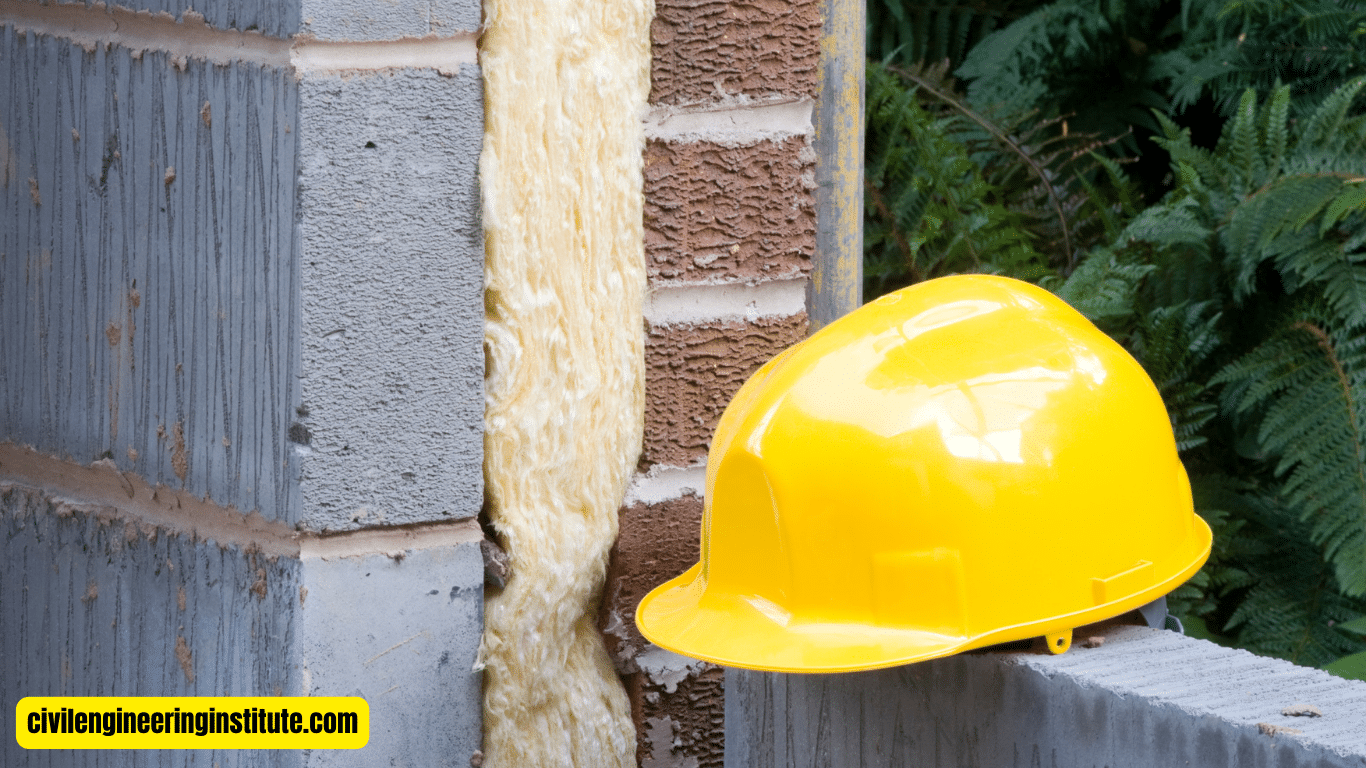
Cavity walls consist of two layers: an inner and an outer layer, with a gap (cavity) in between. This gap is typically filled with insulation material, enhancing the thermal efficiency of the building. Cavity walls are known for their ability to reduce heat loss and dampness, contributing to energy savings and maintaining indoor comfort.
Some important queries: Types of masonry walls in civil engineering
What is a Masonry Wall?
A masonry wall is a structure made by arranging individual units, such as bricks, stones, concrete blocks, or clay tiles and binding them together using mortar. These walls are solid and sturdy, providing support and enclosure to buildings and other structures.
What is Masonry in Civil Engineering?
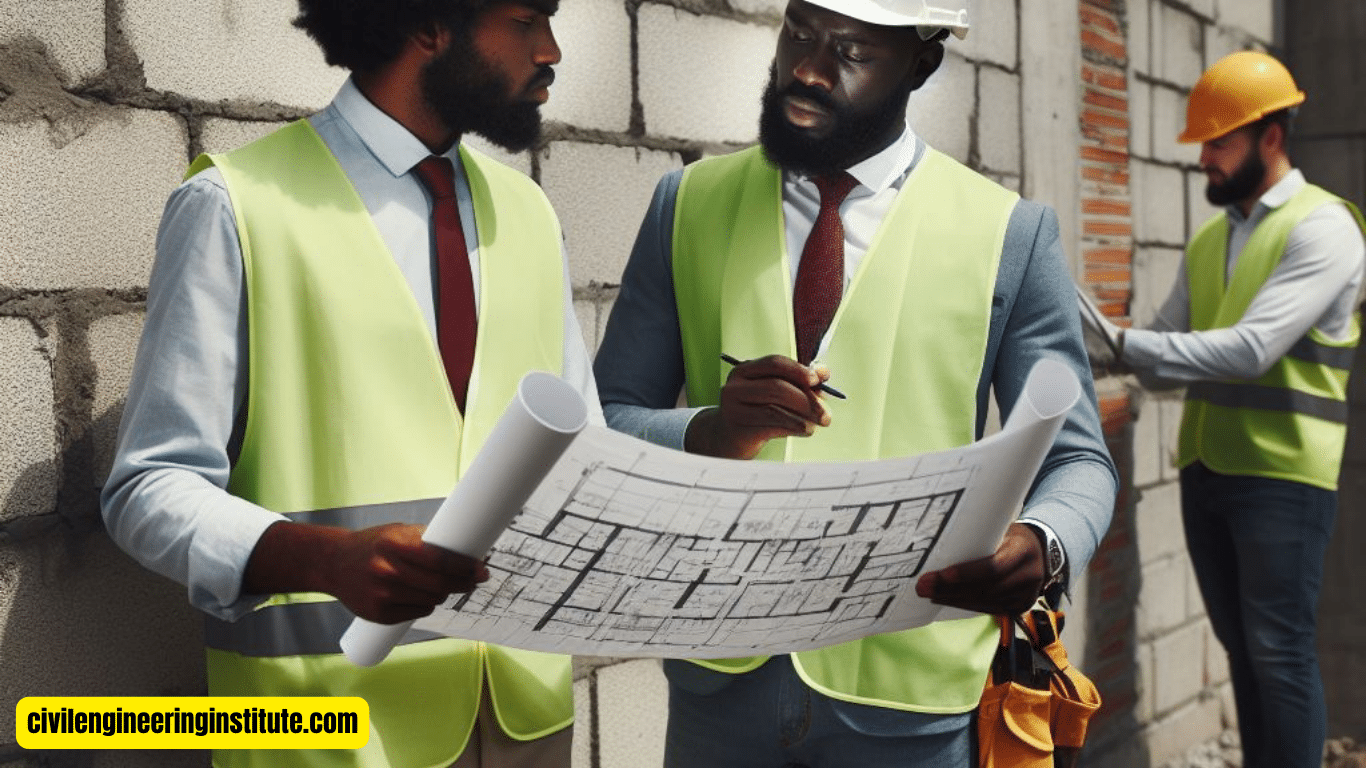
In civil engineering, masonry refers to the construction technique of building structures using individual units bound together by mortar. It’s a traditional method that has been used for centuries and is still widely employed today due to its durability and versatility.
Types of masonry walls in civil engineering
There are three main types of masonry:
- Brick Masonry: Constructed using bricks, which are rectangular units made from clay, shale, or concrete.
- Stone Masonry: Built using natural stones such as granite, limestone, or marble, arranged in various patterns.
- Concrete Masonry: Utilizes concrete blocks or bricks made from a mixture of cement, aggregate, and water.
Where Are Masonry Walls Used?
Masonry walls are used in various construction projects, including residential, commercial, and industrial buildings. They are also common in retaining walls, boundary walls, garden walls, and historical structures.
Applications of Masonry Walls

Masonry walls serve several purposes, including providing structural support, dividing interior spaces, offering thermal insulation, and enhancing the aesthetic appeal of a structure. They can also act as sound barriers and fire-resistant partitions.
Purpose of Masonry
The primary purpose of masonry is to create durable and stable structures that can withstand various loads and environmental conditions. Masonry provides strength, stability, and longevity to buildings while offering architectural flexibility and aesthetic charm.
Size of Masonry Walls
The size of masonry walls can vary depending on the specific requirements of a project. Typically, the thickness of masonry walls ranges from about 4 inches to several feet, depending on factors such as load-bearing capacity, structural design, and building codes.
Normal Masonry
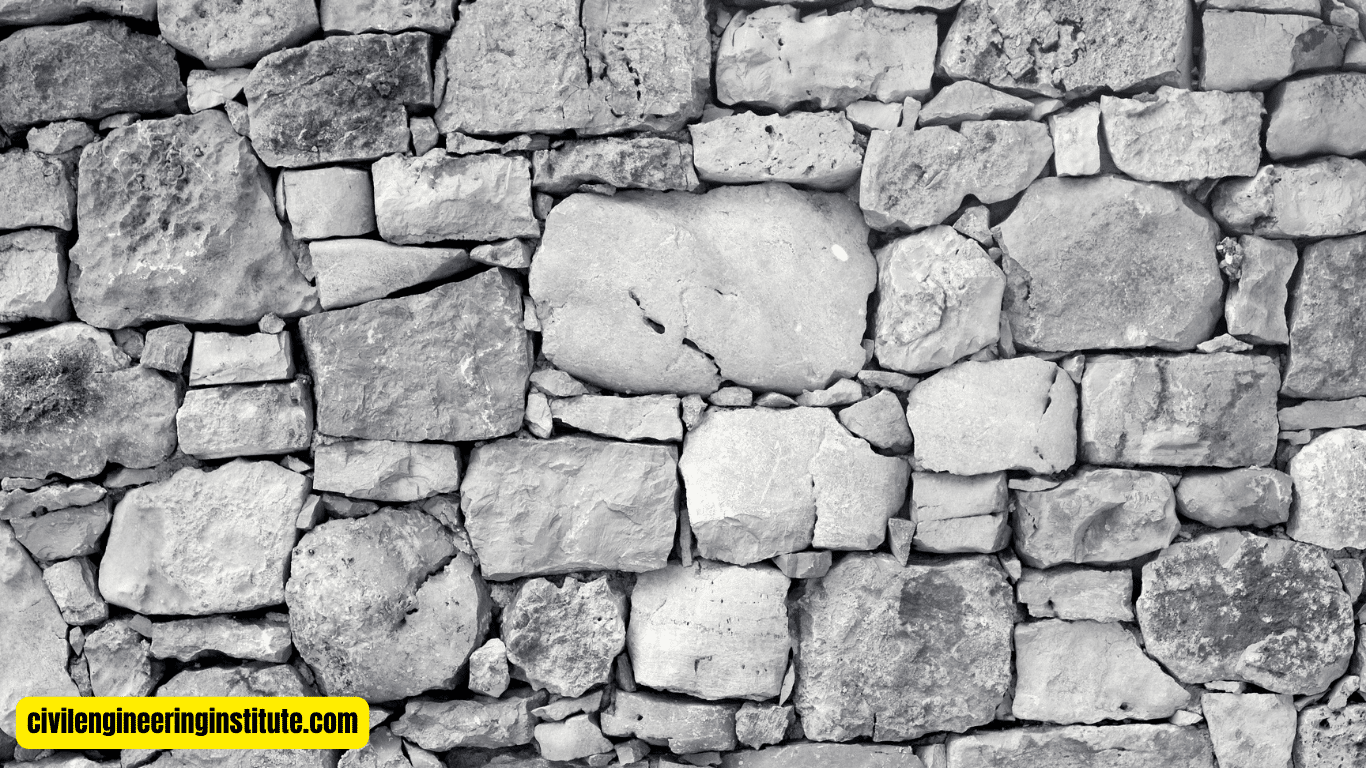
Normal masonry refers to the standard construction practices and techniques used in building masonry structures. It involves accurately laying out individual units, applying mortar evenly, and ensuring proper alignment and bonding to achieve a solid and durable wall.
Conclusion
Understanding the different types of masonry walls in civil engineering is essential for architects, engineers, and builders alike. Each type offers distinct advantages in terms of strength, insulation, aesthetics, and cost-effectiveness. By choosing the right type of masonry wall for a project, construction professionals can ensure the creation of resilient and visually appealing structures that stand the test of time.
FAQs
What are masonry walls in civil engineering?
Masonry walls are structures built using individual units like bricks, stones, or concrete blocks, held together by mortar.
What are the main types of masonry walls?
The main types are brick masonry, stone masonry, and concrete masonry.
What is brickmasonry?
Brick masonry involves using bricks made from clay, shale, or concrete to construct walls.
What is stonemasonry?
Stone masonry is the construction of walls using natural stones like granite or limestone, arranged in different patterns.
What is concrete masonry?
Concrete masonry involves using concrete blocks or bricks made from cement, aggregate, and water to build walls.
Where are brick-masonry walls commonly used?
Brick masonry walls are commonly used in residential, commercial, and industrial buildings.
Where are stone masonry walls typically found?
Stone masonry walls are often used in historical structures, boundary walls, and garden walls for their aesthetic appeal.
What are the advantages of concrete masonry walls?
Concrete masonry walls offer durability and fire resistance and can be easily molded into various shapes and sizes.
What is the difference between load-bearing and non-load-bearing masonry walls?
Load-bearing walls support the structure’s weight, while non-load-bearing walls serve as partitions or enclosures within a building.
Can masonry walls be reinforced?
Yes, masonry walls can be reinforced with materials like steel bars or mesh to increase their strength and stability.
Do masonry walls provide insulation?
Yes, masonry walls offer thermal insulation, helping to regulate indoor temperatures and reduce energy consumption.
Are masonry walls resistant to fire?
Yes, masonry walls are generally fire-resistant, providing a barrier against the spread of flames and smoke.
Can masonry walls be painted or decorated?
Yes, masonry walls can be painted, plastered, or adorned with various finishes to enhance their appearance.
How long do masonry walls last?
Properly constructed and maintained masonry walls can last for decades or even centuries, depending on the materials used and environmental factors.
Are there any environmental benefits to using masonry walls?
Yes, masonry walls are environmentally friendly as they are made from natural materials, recyclable, and have a long lifespan, reducing the need for frequent replacements.
